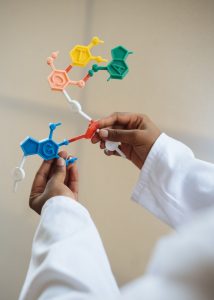Scientists Warn That Humans Are Losing Their Ability To Procreate Quickly
 When we are at school, we learn that the way of life is to be born, grow, reproduce and die. Well, sometimes the midway can be different, but the beginning and the end are the same no matter which living being you are. But as time goes by, the world, and also all living beings in it, including humans, go through changes.
When we are at school, we learn that the way of life is to be born, grow, reproduce and die. Well, sometimes the midway can be different, but the beginning and the end are the same no matter which living being you are. But as time goes by, the world, and also all living beings in it, including humans, go through changes.
For example, a professor of environmental medicine is warning about the rapid decline in humanity’s fertility rates . According to her, chemicals in plastic are the main culprits.
Professor Shanna Swan teaches environmental medicine and public health at the Mount Sinai Icahn School of Medicine in New York City. She helped complete a large study in 2017 that found sperm counts among men in Western countries had dropped more than 50% over the past four decades.
Fertility
In February of that year, Shanna released her book “Count Down”. He investigates how and why humans are losing their ability to procreate.
“People are acknowledging that we have a reproductive health crisis, but they say it’s because of delayed childbearing, choice or lifestyle. It cannot be chemical. I want people to acknowledge that it is. I’m not saying other factors aren’t involved. But I’m saying chemicals play an important causal role,” Shanna said.
 In the 2017 study, researchers found that sperm concentration dropped from 99 million per mL in 1973 to 47.1 million per mL in 2011. This sharp decrease in sperm is 53.4% in men in Western countries like for example, Australia New Zealand, North America and Europe.
In the 2017 study, researchers found that sperm concentration dropped from 99 million per mL in 1973 to 47.1 million per mL in 2011. This sharp decrease in sperm is 53.4% in men in Western countries like for example, Australia New Zealand, North America and Europe.
According to Shanna, one of the main causes of this decrease are products that “interfere or mimic the body’s sex hormones”.
“The phthalates, used to make plastic soft and flexible, are a primary concern. They are in everyone and we are probably mainly exposed through food, as we use soft plastic in the manufacture, processing and packaging of food”, he explained.
“They lower testosterone and therefore have the strongest influences on the male side, for example lowering sperm counts , although they are also bad for women, showing that they decrease libido and increase the risk of precocious puberty, ovarian failure premature birth, miscarriage and premature birth,” he continued.
Comments
Shanna goes further and projects that the world will be on the verge of becoming completely infertile by 2045. “The current state of reproductive affairs cannot continue for much longer without threatening human survival,” she pointed out.
As dire as this situation is, there is hope. Shanna says the chemical industry needs to develop chemicals that are not hormonally active to be used domestically.
… Read more